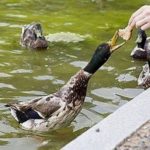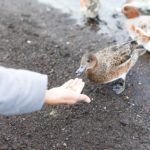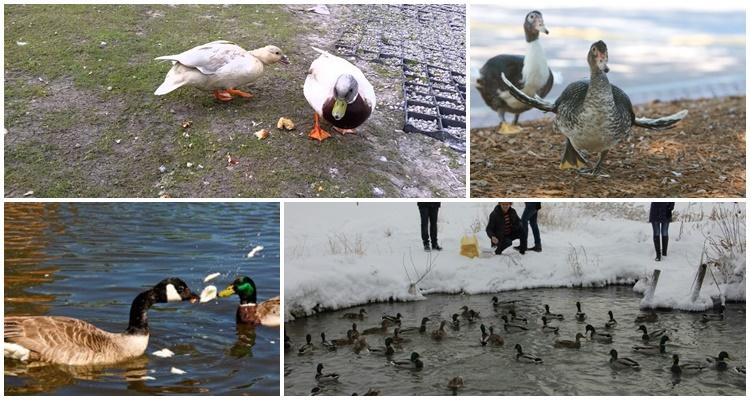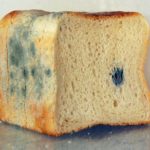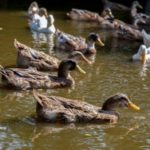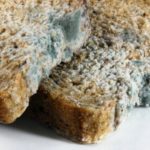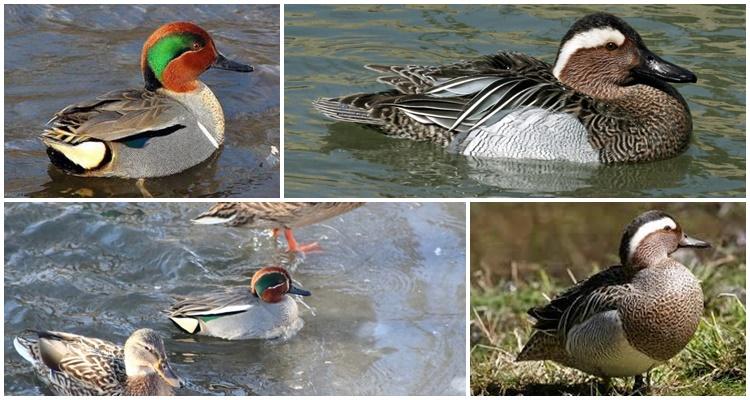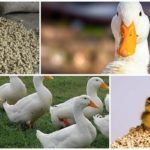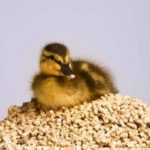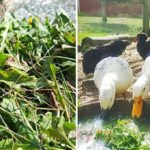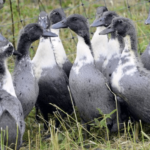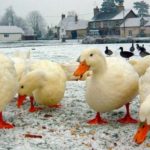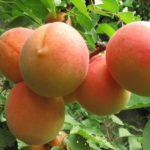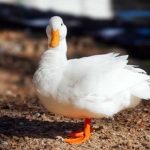The diet of domestic ducks consists of aquatic plants and small animals, fish, green grass, grain and grain waste. Such food is given to the birds by the owners, raising them on their plots. Sometimes they feed them kitchen scraps, including some bread. But is it good for ducks? Let's consider whether it is possible or not to feed ducks with different types of bread, what generally can and cannot be fed to them.
Features of the digestive system of ducks
Ducks are considered omnivores; they can eat solid food, that is, grain and grass, and soft aquatic vegetation.The stomach of birds is designed in such a way that it can digest both plant and animal food.
Ducks have an intense metabolism, the structure of the digestive organs ensures rapid digestion and passage of food, its absorption, and in some individuals, rapid adaptation to new food. Although ducks can eat a variety of foods, some are harmful to them. Due to disorders caused by inappropriate or poor quality food, they may die.
Is it possible to give bread to ducks?
Bread is not a regular food for ducks, but since it consists of grain, it is theoretically not harmful in itself. The degree of harmfulness depends on the type and freshness. Let's consider whether it is possible or not and in what quantities to give black and white bread and flour products.
White
This is the most harmful type of bread for ducks of any age. It consists of white flour and yeast, which, when entering the stomach, provoke fermentation of its contents. It swells and can clog the digestive tract, causing the bird to die. In addition, ducks, having eaten a satisfying meal, then do not want to eat other food. This leads to a deficiency of nutrients in the body and the development of a disease in which the feathers on the wings grow to the sides. The bird loses its ability to fly.
At home, at the initial stage of the disease, you can correct the situation by feeding vitamins and minerals, but this will lead to the death of a wild duck.
The harmfulness of bread also depends on the amount eaten. If the duck ate a little, nothing will happen. But you cannot specifically feed birds with white bread, loaf, roll, cookies, much less replace grain and grain waste with them. This applies to both domestic ducks and wild ones, which some people feed on the pond.The harm from feeding bread is not only direct, but also indirect. Food residues pollute the water, causing bacteria and fungi to grow. Water stagnates and becomes polluted.
Black
The composition of black bread is healthier than white bread. But it cannot be given fresh. It is soft, ducks eat it willingly, but as it softens even more in the stomach, it swells. If you feed ducks black bread, it should not be fresh, but first dried and then soaked in water. For domestic animals, you can add crackers to wet mash, and for wild animals, you can feed them with crumbs. Feeding bread does not have to be constant; it is enough to give it to poultry once a week.
With mold
Moldy foods should not be fed to any farm animals or poultry, including ducks and turkeys. Mold does not provide any benefit, fungal toxins cause poisoning, and aspergillosis develops when the spores are inhaled. Animals and humans become ill with aspergillosis; the spores, when they get on the mucous membranes, germinate and cause severe mycoses. The pathology develops quickly; the duck can die in just 2-3 days from the moment of infection. Therefore, it is prohibited to give moldy bread to domestic ducks, both ducklings and adults, ordinary ducks and mulards.
What else should you not give?
In addition to bread, ducks should not be given sweets or salty foods, nuts, chips, cookies, popcorn, or cakes. All this seems tasty to humans, but is harmful to birds. Moreover, it does not matter whether the duck eats such food constantly or from time to time. It contains ingredients that are alien to the bird’s body: large quantities of salt, spices, dyes, preservatives, etc. It is best not to give ducks onions, which are good for humans but not for waterfowl. It is forbidden to treat you to chocolate, sweets and anything that contains a lot of sugar.
Pets also get used to bread quickly, they may prefer it to other foods, or choose from mash. If there is a lot of it in the diet, the bird will receive only certain nutrients and not receive enough of the rest. This will lead to hypovitaminosis and further diseases.
It is not recommended to feed a lot of legumes, especially peas. It provokes flatulence, gastrointestinal upset, and if the duck manages to avoid this, it will quickly become obese. Fat females do not lay eggs well, and not everyone likes this kind of meat. Therefore, the proportion of legumes in the diet should be minimal, only to satisfy the need for valuable plant proteins.
It is not advisable to give whole dry grain; it is better to grind it and boil it a little. This way the product will be absorbed almost completely and in a short time. Potato peelings, citrus peels and pumpkin peels are difficult for ducks to digest; you can also do without them. Do not moisten the mash with fresh milk. Ducks lack the enzymes needed to digest lactose. Milk causes them to have eating disorders.
What can you feed?
If you want to feed the bird, you need to take with you slightly boiled cereals, sprouted grains, cottage cheese, boiled eggs or vegetables. You can take pieces of stale black bread. Ducks can be treated to fruits, young corn, apples, and zucchini.
For wild birds, you can buy special food that is sold at a pet store.The ingredients in it are selected so that they will not harm the duck’s body. It comes in granule form and is easy for ducks to eat. You can feed them in winter, when it is cold or snowy. In such weather it is difficult for them to find anything, and feeding will come in handy.
Domestic ducks can be given kitchen scraps, including scraps, uneaten food and bread. All this can be put into mash, but no more than 1/5 of it. Calculate the volume so that everything is eaten. If ducks leave leftovers, it means they are not hungry. Feeders need to be cleaned every day of food debris, which quickly spoils. Treat with antiseptics once a month.
The answer to the question whether or not it is possible to give bread to ducks is not clear-cut. On the one hand, it does not cause much harm when fed correctly in small quantities. Therefore, it cannot be categorically prohibited. The product can partially replace grain in the diet, but feeding it constantly is harmful. In this case, you cannot use fresh, especially just baked bread, it is harmful even for the human stomach, and bird bread is no exception. You should not give old, sour or moldy ones, so as not to poison the ducks.

